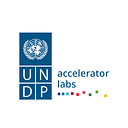Ukraine: exploring grassroots solutions to accelerate urban renewal
By Katerina Rybalchenko, Anton Tyshkovskyi, Sulamita Romanchik, Solomia Stakhiv, Solomiya Stakhiv
It is a bright Saturday morning and you are walking down the central street of your beautiful but run-down city when a stranger approaches with a question: Will you to contribute money to restore the city’s historic properties? Do you trust the person? Or dismiss the idea as a scam?
That’s the unusual choice that recently confronted residents of Ivano-Frankivsk, a historic city in western Ukraine. One person who was approached was Anastasiya Solianyk, an employee of Action Global Communication and resident of the city. Solianyk chose to trust the stranger and she contributed $100.
She was not the only micro-donor. Within several months many residents put aside their skepticism and donated small sums that a long-shot initiative launched to preserve historic doors has grown into something like a civic movement now working on conservation projects for historic tiles, antique windows, and struggling to preserve actual local historical sites.
When urban and social spaces meet
UNDP met Anastasiya recently at one of the many events organized by the Accelerator Lab Network initiative. UNDP Ukraine is becoming an Accelerator Lab soon and, as part of that transformation, staff are exploring Ukraine’s innovation ecosystem, working to identify successful local solutions to local problems with the aim of nurturing and fast-tracking projects that might accelerate development.
At the meeting Anastasiya explained why crowdsourcing for local civic initiatives has become so popular among Ukrainians. Ukraine is rich in historic urban spaces that are popular gathering places for civil society but which could benefit from greater care. With this in mind, we looked to see if the changes happening in Ivano-Frankivsk were a one-off or part of a broader nationwide grassroots movement. A little digging revealed a widespread trend for preserving and adapting old buildings for new purposes.
Several projects that use urban renewal as a spark for broader societal changes caught our attention:
Urban Space 100 is a crowdsource initiative in Ivano-Frankivsk that promotes social projects from and for the community. Founded by 100 investors, Urban Space 100 is a restaurant where 80 percent of the profits are invested in community projects through a common trust fund. The restaurant functions as a platform for new ideas and provides space for local events and gatherings that foster community participation and cohesion.
Promprylad is a multipurpose space based in an abandoned factory with a social return value of 5 USD for every dollar spent. The space hosts a children’s education center, a dance school and a meeting space for the community.
Unit.City in Kyiv is the first innovation park in Ukraine. The center brings the IT and innovation community together to foster change, growth and development. It aims at stopping the country’s current brain drain.
A new path for our Accelerator Lab?
During our exploration journey we learned that there is an appetite to grow and replicate these types of initiatives. Kyiv, the capital city, has already done so with its Urban Space 500.
While this kind of urban renewal for social purposes is something new in Ukraine, it is a well understood catalyst for other cities around the world. Borrowing from the insight of Jane Jacobs — the great philosopher of urban economies, “cities use old buildings to house new ideas”. While much development work has focused on capacity building of humans, there is ample evidence from the world of business that improving physical infrastructure of urban public spaces is the foundation for all sorts of important civic goods.
The Ukraine Accelerator Lab could support setting up legal and governance infrastructures to promote new urban renewal models potentially accelerating several Sustainable Development Goals. Although we are still exploring, we are really excited about new avenues of work inspired by grassroots solutions that are already working.
Solutions mapping is one of the new services that UNDP Accelerator Labs will be experimenting with. The potential of tapping into local solutions is immense. Instead of having external experts devise off-the-shelf solutions, the Labs will focus on identifying and promoting local ones, as these are more likely to replicate and scale within society.
In Ukraine, this approach has proved to be instrumental in gaining new insights, identifying unusual partners, and spotting emergent trends. Being part of the network will help us learn faster and drive impact globally. Development is at our fingertips — it’s time to accelerate!
— — — —
About the authors:
Katerina Rybalchenko is Team Leader of the Business Development and Innovations Unit at UNDP Ukraine. Follow her on Linkedin.
Anton Tyshkovskyi is Monitoring, Evaluation and Innovation Specialist at UNDP Ukraine. Follow him on Twitter.
Sulamita Romanchik is Programme Development and Innovation Officer at UNDP Ukraine. Follow her on Linkedin.
Solomiya Stakhiv is Programme Development Consultant at UNDP Ukraine.
